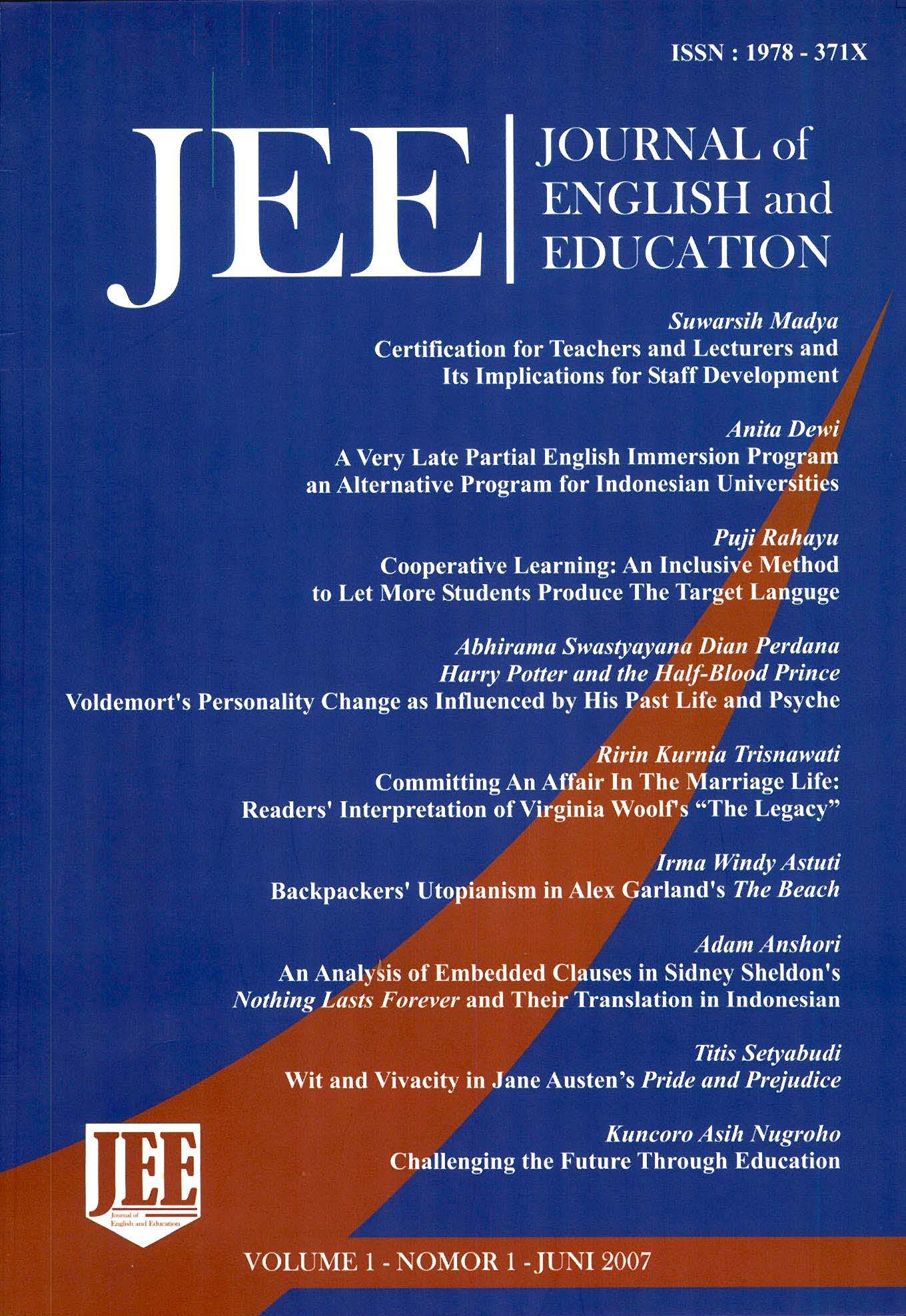Main Article Content
Abstract
This paper is focused on the establishment and improvement of an immersion program at Indonesian tertiary level of education. Considering internal and external factors such as economy, socio-culture, and politics, it is argued that such a program is needed. Beginning with the rationale of bilingual education program, the discussion will continue on the current situation as the background, the issues and implications, the proposal, and the possible implementation plan of an immersion program.
English is proposed as the target language in the program considering its being the language of knowledge, the language of global job markets, the language of information and technology dissemination, and the language of politics and socio-culture around the globe. However, due to several contextual reason, among which are the government policy and resource availability, the application cannot be in the form of a full immersion program. These considerations play important roles in determining the feasibility and the implementation of the program. Adjusting to the situation and local context, the application is proposed to be a very late partial English immersion program.
Keywords
Article Details
Copyright (c) 2016 JEE, Journal of English and Education

This work is licensed under a Creative Commons Attribution-ShareAlike 4.0 International License.
Authors who publish with this journal agree to the following terms:
- Authors retain copyright and grant the journal right of first publication with the work simultaneously licensed under a Creative Commons Attribution-ShareAlike 4.0 International License that allows others to share the work with an acknowledgment of the work's authorship and initial publication in this journal.
- Authors are able to enter into separate, additional contractual arrangements for the non-exclusive distribution of the journal's published version of the work (e.g., post it to an institutional repository or publish it in a book), with an acknowledgment of its initial publication in this journal.
- Authors are permitted and encouraged to post their work online (e.g., in institutional repositories or on their website) prior to and during the submission process, as it can lead to productive exchanges, as well as earlier and greater citation of published work (See The Effect of Open Access).

